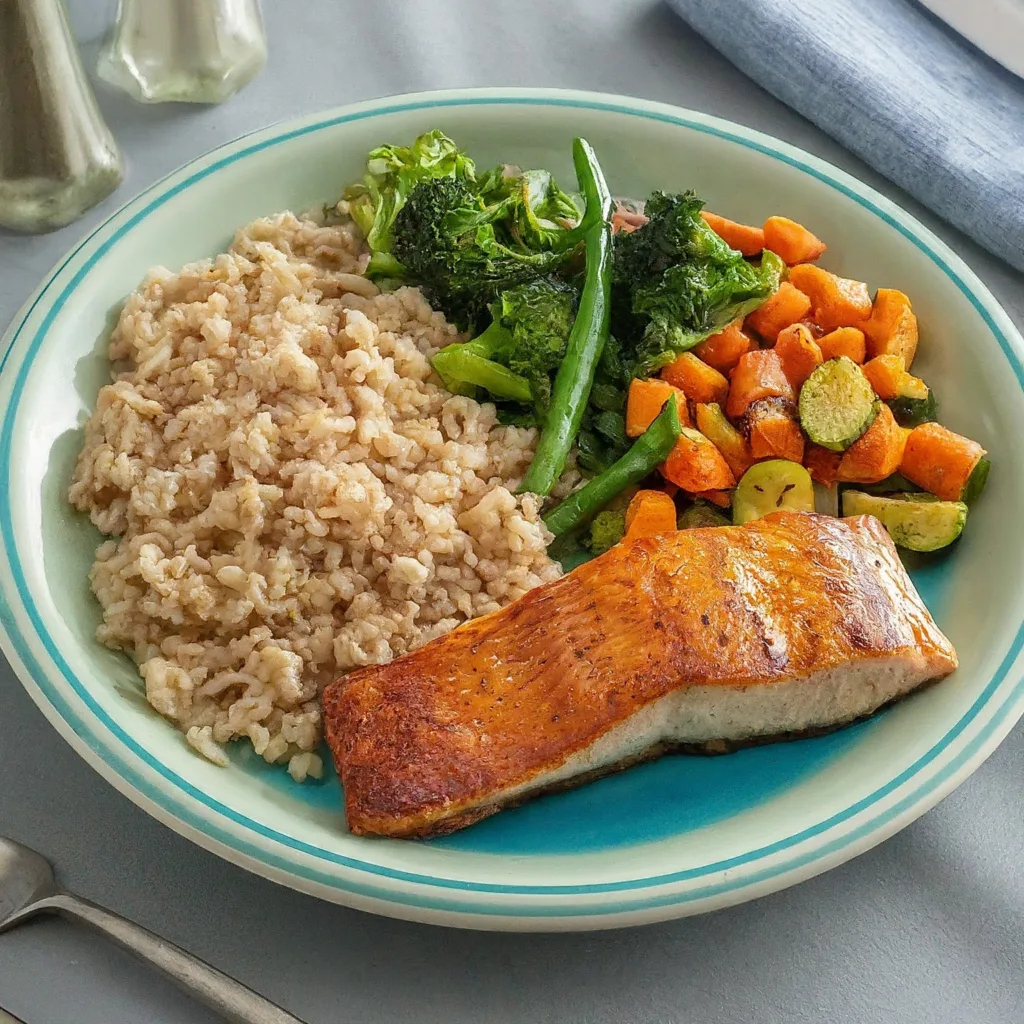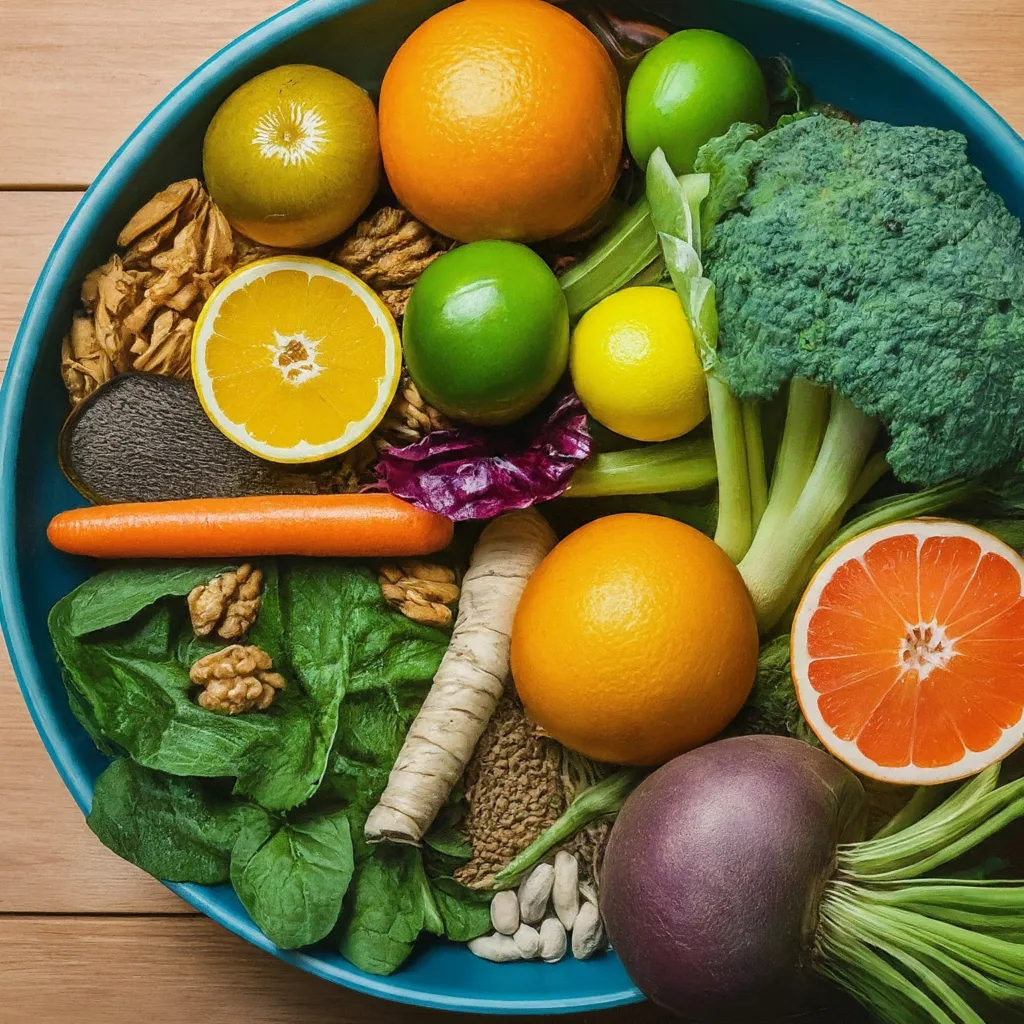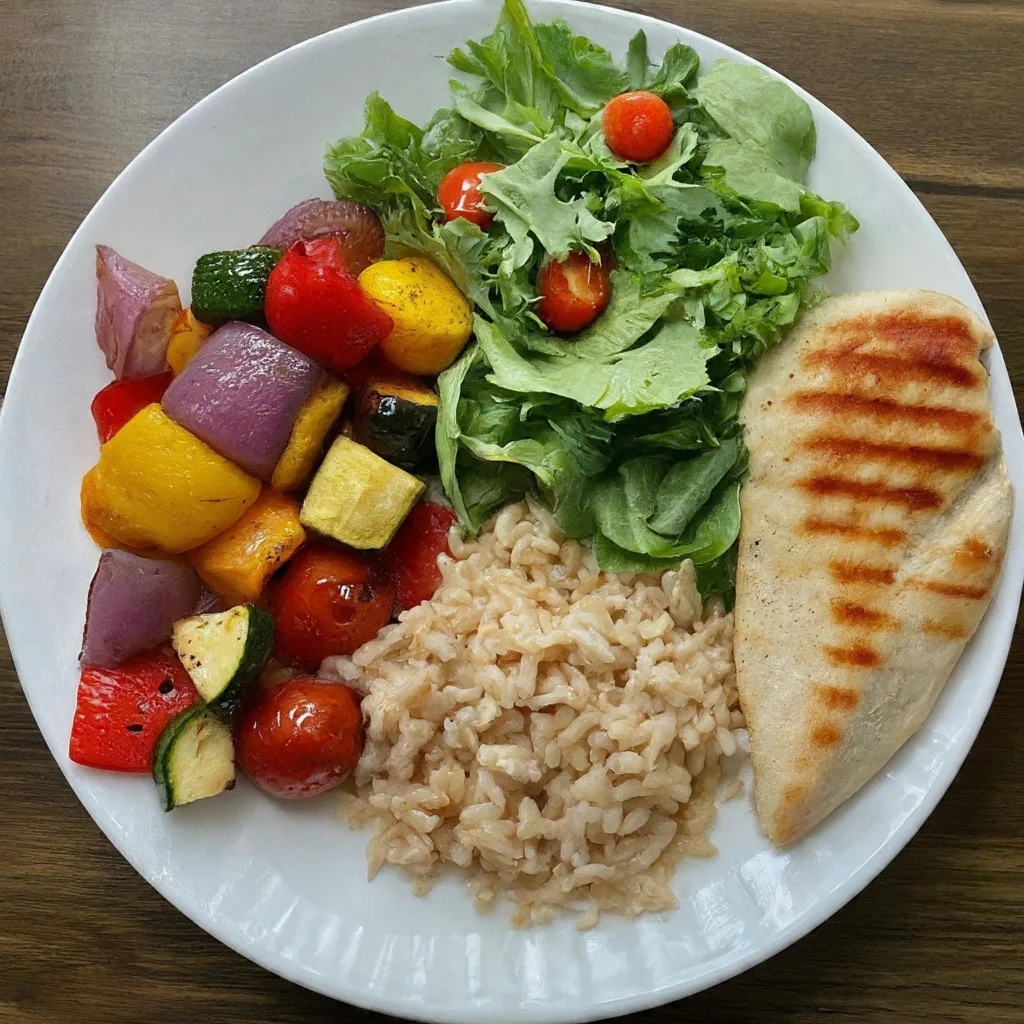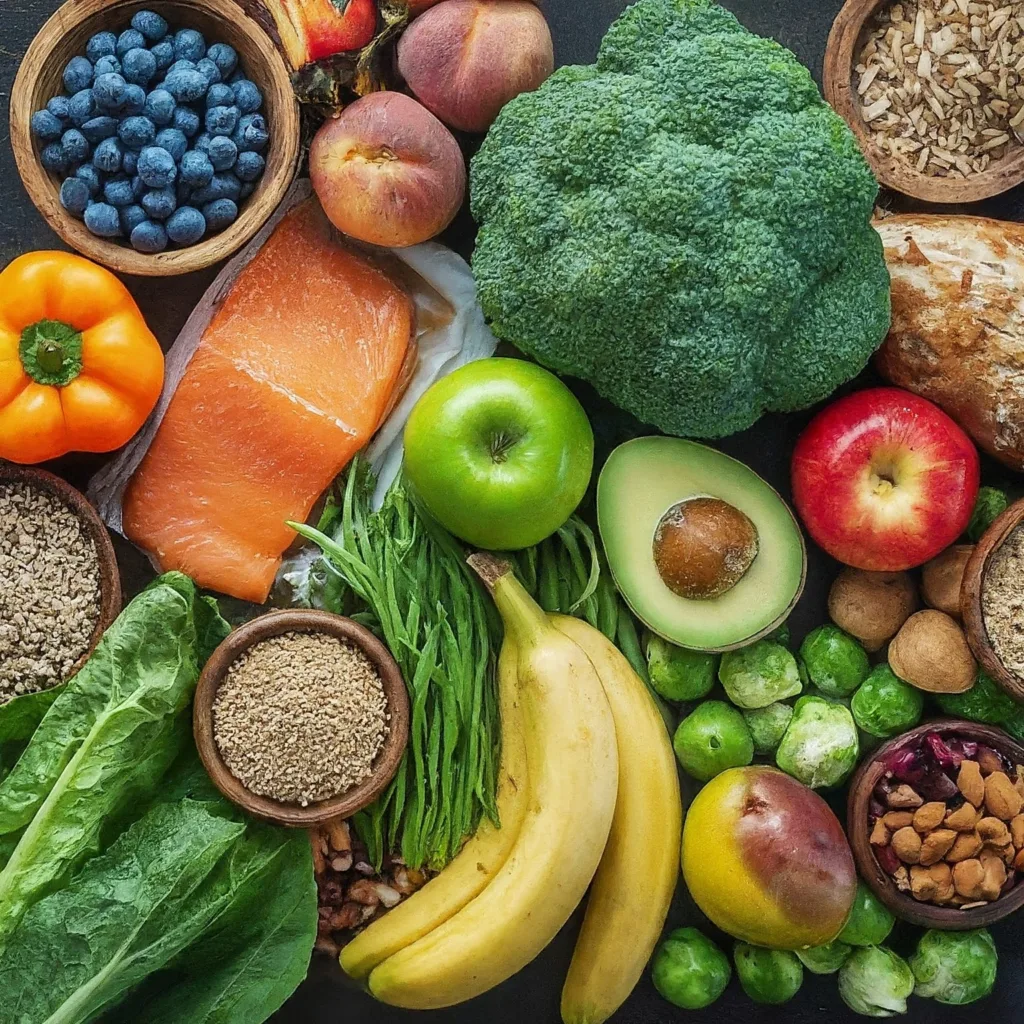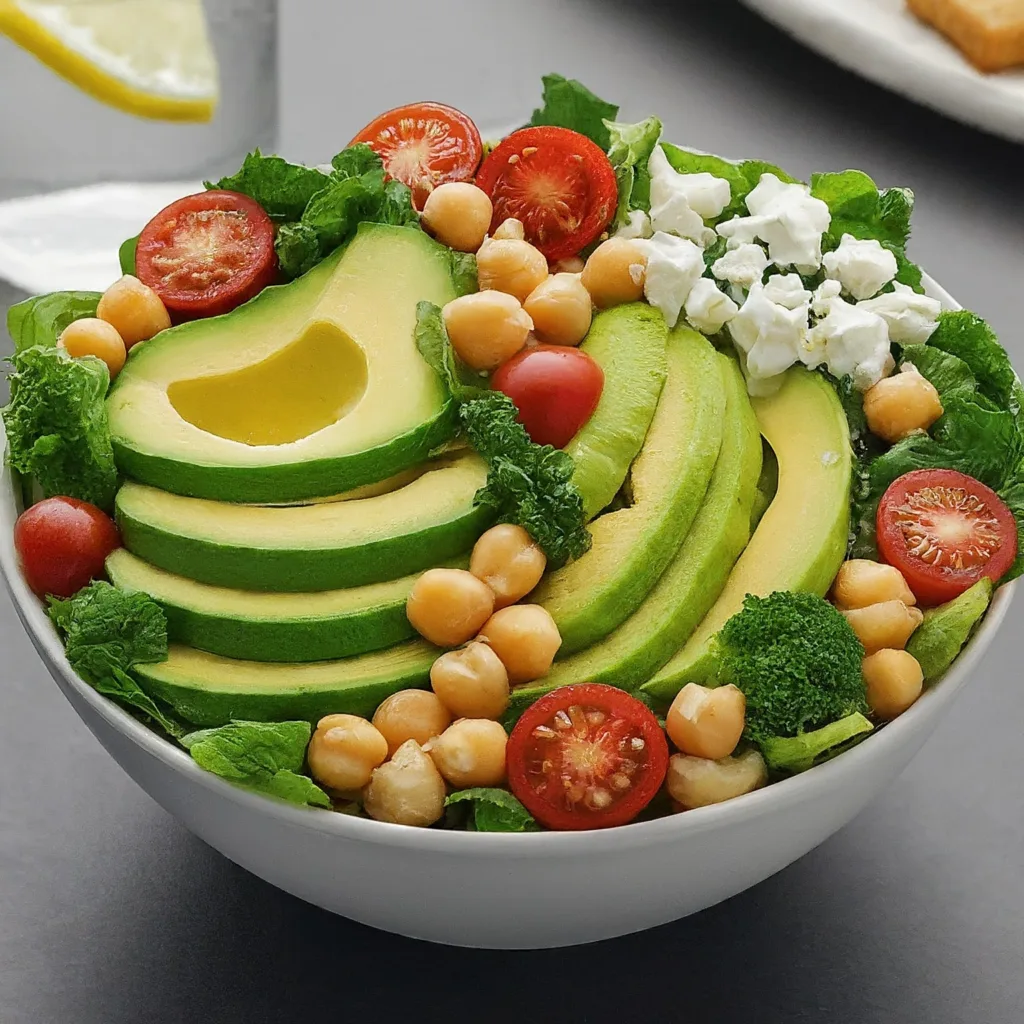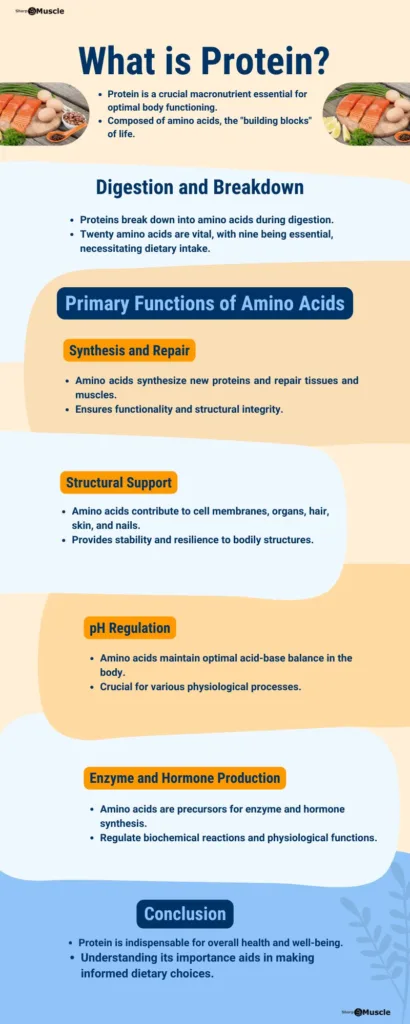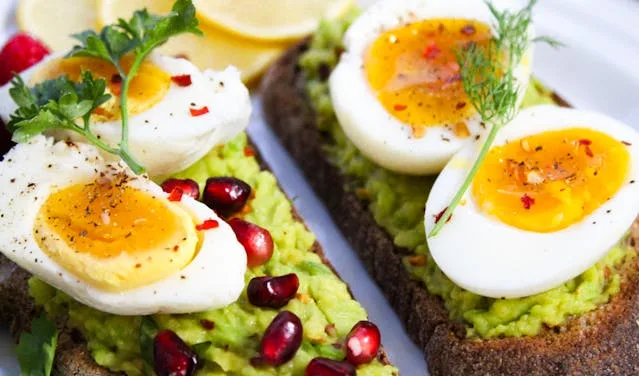A post-workout meal is essential to replenish those lost stores, making the recovery process easier. What you eat after a workout is just as important as what you eat before your training session.
Eating recovery foods with the right nutrients immediately after exercise can help your body do this faster, encouraging muscle protein synthesis to repair and build new muscle tissue. It’s especially important to eat protein and carbs after your workout. After your workout, your body attempts to rebuild its glycogen stores as well as repair and regenerate those muscle proteins.
Keep reading to learn more about what you can or can’t eat in your post-workout meal for a faster recovery.
What is post-workout meal?
A post-workout meal is a meal that is consumed after exercising or completing a physical workout. The purpose of a post-workout meal is to provide the body with the nutrients it needs to recover, repair, and rebuild itself after the stress of exercise. A balanced post-workout meal should include a combination of protein, carbohydrates, and healthy fats.
Benefits of post-workout meal
A well-timed and balanced post-workout meal can provide a number of scientific benefits for the body, including:
- Improved recovery: Consuming a meal with a balance of carbohydrates, protein, and healthy fats can help to replenish glycogen stores, repair muscle damage, and reduce inflammation, leading to improved recovery after exercise.
- Enhanced muscle building: Protein is essential for repairing and building new muscle tissue, and consuming protein after exercise can help to optimize muscle growth and recovery.
- Increased energy: Carbohydrates are the body’s main source of energy, and consuming a meal with carbohydrates after exercise can help to replenish glycogen stores and provide a burst of energy to help you power through the rest of your day.
- Improved hydration: Drinking fluids after exercise can help to replenish fluids lost through sweating, improve digestion, and support overall hydration.
- Improved immune function: Exercise can temporarily suppress the immune system, and consuming a meal with a balance of nutrients can help to support immune function and reduce the risk of illness.
- Reduced muscle soreness: Consuming a meal with anti-inflammatory nutrients, such as omega-3 fatty acids and antioxidants, can help to reduce inflammation and muscle soreness after exercise.
Overall, consuming a balanced post-workout meal can help to support recovery, enhance muscle building, and improve overall health and wellness.
Post-workout meal
Most champions are created by punch-the-clock workouts rather than extraordinary efforts.
A post-workout meal is part of the “bodybuilding canon,” so to speak.
If you’ve been lifting for any length of time, you’ve heard the story: If you don’t eat protein and/or carbs after training, you’ll either slow down muscle growth or lose the opportunity to accelerate it.
It is also often claimed that the time after a workout is the “anabolic window” in which you should eat your food. If you miss this window, as the story progresses, you either lose or miss out on additional gains.
Well, the truth is that although these dogmas are exaggerated, there is some truth in them.
When you workout, you start a process whereby muscle proteins are broken down (also known as proteolysis). This effect is mild when you are training, but it increases rapidly after that. If you’re training in a fasted state, proteolysis is even greater, especially after three or more hours of training.12
Now, muscle breakdown is not inherently bad, but when it exceeds the body’s ability to synthesize new proteins, the net result is muscle loss. Conversely, when your body synthesizes more protein molecules than it loses, the net result is muscle growth.
The goal of post-workout nutrition is to minimize post-workout muscle breakdown and maximize protein synthesis. And like with pre-workout nutrition, you get these effects by eating protein and carbohydrates after training.
Post-workout protein
Eating protein after a workout stimulates protein synthesis, which prevents muscle breakdown and initiates muscle growth.
A study by University of Texas researchers illustrates the importance of this. Researchers had subjects do heavy leg-resistance training, which was followed by slow (over the course of several hours) ingestion of a placebo, a mixture of essential and nonessential amino acids, or only essential amino acids.3
The result was that the group that drank the placebo showed a negative muscle protein balance (that is, they were losing muscle mass) several hours after their workout, while the groups that consumed the amino acid mixture showed a positive balance (they were building muscle).
We also know that post-workout protein stimulates more protein synthesis than protein eaten at rest. This was demonstrated by a study conducted by researchers from the Shriners Burns Institute. They took 6 normal, untrained men and intravenously infused them with a balanced amino acid mixture at rest and after leg workouts. The post-workout infusion resulted in 30 to 100% higher protein synthesis than the resting infusion.4
While these may seem like minor benefits, they add up over time. The more time your body spends building protein rather than breaking it down, the more muscle mass you gain. Over the course of months or years, the small protein synthetic gains that accrue each day can add up to several pounds of extra muscle.
It’s not just theory, either. Clinical research indicates that consuming protein within 1 to 2 hours after finishing a workout can actually increase overall muscle growth over time.
For example, in a study conducted by researchers at Bispebjerg Hospital, 13 untrained elderly men followed a 12-week resistance training program. One group received an oral protein/carbohydrate supplement immediately after exercise, while the other group received the same supplement two hours after exercise.5
Results: The post-workout ingestion group built more muscle than the two-hour post-ingestion group.
A well-designed and well-executed study by scientists from the University of Victoria also deserves review. It was conducted with 23 recreational bodybuilders who followed an intense weightlifting program for 10 weeks and were divided into two groups6:
- A group that eats a protein and carbohydrate meal immediately before and after training and
- A group that eats the same meal in the morning and evening, at least five hours outside the workout.
After 10 weeks, the researchers found that the first group (pre-workout and post-workout consumption) built significantly more muscle mass than the second group (morning and evening consumption).
So… if post-workout protein is good, the obvious question is, how much should you be eating?
Well, mentioned a study commonly cited in relation to post-workout protein recommendations showing that 20 grams of post-workout protein stimulates maximal muscle protein synthesis in young men. That is, eating more than 20 grams of protein after a workout did little else in terms of encouraging additional muscle growth.7
We can’t assume that this 20-gram number applies to everyone, however, as protein metabolism is affected by several things:
How many muscles do you have?
The more you have, the more amino acids your body will need to maintain your musculature, and the greater the amount of excess substances your body can store.
How active are you?
The more you move, the more protein the body needs.8
How old are you?
The older you get, the more protein body needs to maintain its muscle mass.9
Tour hormones
Elevated levels of growth hormone and IGF-1 (insulin-like growth factor 1) stimulate muscle synthesis. If your body has high levels of these anabolic hormones, it will use protein better than a person with low levels.10
On the other hand, elevated levels of cortisol reduce protein synthesis and accelerate the process by which the body breaks down amino acids into glucose (gluconeogenesis), reducing the amount available for tissue building and repair. Some people have elevated cortisol levels over a long period of time, and this disrupts protein metabolism.11
Therefore, while 20 grams of protein may be sufficient to stimulate maximum muscle growth in some people under certain conditions, it will not be enough for everyone. Some people will need more to reach the same level of synthesis, and others will be able to benefit from more protein (this will lead to more protein synthesis).
And that’s why I recommend that you eat a familiar amount of 30 to 40 grams of protein at your post-workout meal. The protein I use, which you can find in the bonus report, also contains added leucine, which has been shown to further increase muscle protein synthesis over whey protein alone.12
Post-workout Carbs
The most common reason you are told to eat carbs after training is to increase insulin levels, which are believed to accelerate muscle growth. This is not entirely accurate because, as you now know, insulin does not tell the muscles to grow – it only has anti-catabolic properties.13
What is true, however, is that post-workout insulin spikes reduce the rate of protein breakdown that occurs after exercise. And since muscle growth is nothing more than the rate of protein synthesis plus the rate of protein breakdown, whatever increases the former and decreases the latter, betters this “equation” in your favor.14
A good example of this at work is a study by researchers at McMaster University that compared the effects of high-carbs and carbs diets with subjects engaging in regular exercise. The researchers found that subjects who followed the low-carb diet had increased rates of protein breakdown and reduced protein synthesis rates, resulting in reduced overall muscle growth.15
These insulin-dependent benefits are about 15 to 30 micrograms per liter, or about 3 to 4 times lower than normal fasting insulin levels. “Spicing” insulin levels higher than this does not give a more “protein sparing” effect.16
And it turns out you don’t even need to eat carbs to reach this level: You can do it with protein alone. One study showed that insulin response to ingestion of 45 grams of whey protein peaked in about 40 minutes, and these levels remained for about 2 hours.17
If you add carbs to the post-workout meal, however, insulin levels will rise faster and remain elevated for longer periods of time. One study showed that consuming a mixed meal containing 75 grams of carbs, 37 grams of protein and 17 grams of fat increased insulin levels over 5 hours. (At the 5 hours mark, when the researchers stopped the test, insulin levels were still twice the fasting levels.)18
So, there are two reasons to include carbs in the post-workout meal, raising insulin levels quickly and keeping them high for longer.
The second reason is related to glycogen. If you’ve been lifting weights regularly, it’s important to keep the muscles as full of glycogen as possible. It improves performance, and research has shown that when muscle glycogen levels are low, exercise-induced muscle breakdown is accelerated.1920
Anaerobic exercise such as weight lifting and high-intensity interval cardio cause a significant decrease in muscle glycogen stores, and when your body is in this post-workout glycogen-depleted state, it uses carbohydrates to replenish glycogen stores. Its ability to do this greatly increases. In this situation, the muscles can “supercompensate” with glycogen, meaning they can store more than they did before depletion.2122
Unless you engage in multiple bouts of intense exercise in the same day, this “supercompensation” will not affect the workout performance. As long as you eat enough carbs throughout the day, the body will eventually replenish its glycogen stores. That said, the post-workout position makes for a good “carb sink,” which you can use to enjoy a large number of carbs that have little fat storage (since the body will not store carbohydrates into fat until the glycogen stores are fully replenished)
A good rule of thumb for how much carbohydrate to eat in the post-workout meal is about 1 gram per kg of body weight.
And in terms of eating carbs, the general recommendation is “immediately after exercise.” Research also suggests that eating about half the amount of 1 gram per kg after 2 hours can help replenish glycogen stores, but this is optional because the effects are not nearly as pronounced as with the initial postworkout meal. I recommend that you include this second post-workout meal if it fits the needs of the meal plan, but do not if it doesn’t.
Bottom line
The goals of post-workout nutrition are to minimize post-workout muscle breakdown and maximize protein synthesis. And similar to pre-workout nutrition, you get these effects by eating protein and carbohydrates after training.
Eating protein after a workout, and especially a digestible protein high in leucine like whey, can help you build more muscle over time. I recommend eating at least 30 to 40 grams of protein in your post-workout meal.
Eating carbohydrates after a workout, and especially the quick-digesting form, rapidly elevates insulin levels and keeps them elevated for longer periods of time, which in turn keeps the rate of muscle breakdown low. I recommend 1 gram of carbohydrate per kilogram of body weight in your post-workout meal, which you should eat immediately after exercise.
Research also suggests that half of 1 gram of carbohydrate per kg after 2 hours can help replenish glycogen stores, but this is optional as the effect is almost non-existent. Post-workout protein or carbs will only be needed if the cardio is particularly long and intense (more than 1 hour, with a fair amount of sprinting).23
- Journal of Applied Physiology 106, no. 6 (2009): 2026-39, “Human muscle protein synthesis and breakdown during and after exercise”, DOI: 10.1152/japplphysiol.91481.2008[↩]
- Medicine and Science of Sports and Exercise 35, no. 5 (2003): 784-92, “Free amino acid pool and muscle protein balance after resistance exercise”, DOI: 10.1249/01.MSS.0000064934.51751.F9[↩]
- American Journal of Physiology —Endocrinology and Metabolism 276, no. 4 (1999): E628-34, “Postexercise net protein synthesis in human muscle from orally administered amino acids”, DOI: 10.1152/ajpendo.1999.276.4.E628[↩]
- American Journal of Physiology—Endocrinology and Metabolism 273, no. 1 (1997): E122-29, “An abundant supply of amino acids enhances the metabolic effect of exercise on muscle protein”, DOI: 10.1152/ajpendo.1997.273.1.E122[↩]
- The Journal of Physiology 535, pt. 1 (2001): 301-11, “Timing of postexercise protein intake is important for muscle hypertrophy with resistance training in elderly humans”, DOI: 10.1111/j.1469-7793.2001.00301.x[↩]
- Medicine and Science of Sports and Exercise 38, no. 11 (2006): 1918-25, “Effects of supplement timing and resistance exercise on skeletal muscle hypertrophy”, DOI: 10.1249/01.mss.0000233790.08788.3e[↩]
- American Journal of Clinical Nutrition 89, no.1 (2009): 161-68, “Ingested protein dose response of muscle and albumin protein synthesis after resistance exercise in young men”, DOI: 10.3945/ajcn.2008.26401[↩]
- Journal of the American College of Nutrition 19, no. S5 (2000): 513S-21S, “Beyond the zone: protein needs of active individuals”, DOI: 10.1080/07315724.2000.10718974[↩]
- Journal of Gerontology: Biological Sciences and Medical Sciences, 56 no. 6 (2001): M373-80, “The recommended dietary allowance for protein may not be adequate for older people to maintain skeletal muscle”, DOI: 10.1093/gerona/56.6.m373[↩]
- Baillière’s Clinical Endocrinology and Metabolism 10, no. 4 (1996): 551-70, “The hormonal control of protein metabolism”, DOI: 10.1016/s0950-351x(96)80711-7[↩]
- Journal of Clinical Endocrinology and Metabolism 92, no. 9 (2007): 3553-59, “Effects of cortisol on carbohydrate, lipid, and protein metabolism: studies of acute cortisol withdrawal in adrenocortical failure”, DOI: 10.1210/jc.2007-0445[↩]
- American Journal of Physiology—Endocrinology and Metabolism 288, no. 4 (2005): E645-53, “Combined ingestion of protein and free leucine with carbohydrate increases postexercise muscle protein synthesis in vivo in male subjects”, DOI: 10.1152/ajpendo.00413.2004[↩]
- Journal of Clinical Investigation 80, no. 1 (1987): 1-6, “Effect of physiologic hyperinsulinemia on skeletal muscle protein synthesis and breakdown in man”, DOI: 10.1172/JCI113033[↩]
- Endocrinolog and Metabolism 261, no. 6 (1991): E809-E814, “Proteolysis in skeletal muscle and whole body in response to euglycemic hyperinsulinemia in normal adults”, DOI: 10.1152/ajpendo.1991.261.6.E809[↩]
- Journal of Applied Physiology 109, no. 2 (2010): 431-38, “Effect of glycogen availability on human skeletal muscle protein turnover during exercise and recovery”, DOI: 10.1152/japplphysiol.00108.2009[↩]
- American Journal of Physiology—Endocrinology and Metabolism 295, no. 3 (2008): E595-E604, “Disassociation between the effects of amino acids and insulin on signaling, ubiquitin ligases, and protein turnover in human muscle”, DOI: 10.1152/ajpendo.90411.2008[↩]
- Amino Acids 37, no. 2 (2009): 333-39, “Human insulinotropic response to oral ingestion of native and hydrolysed whey protein”, DOI: 10.1007/s00726-008-0156-0[↩]
- Diabetes 48, no. 5 (1999): 958-66, “Splanchnic and leg substrate exchange after ingestion of a natural mixed meal in humans”, DOI: 10.2337/diabetes.48.5.958[↩]
- European Journal of Clinical Nutrition 53, no. S1 (1999): S112-19, “Physical exercise as a modulator of adaptation to low and high carbohydrate and low and high fat intakes”, DOI: 10.1038/sj.ejcn.1600751[↩]
- Journal of Applied Physiology 109, no. 2 (2010): 431-38, “Effect of glycogen availability on human skeletal muscle protein turnover during exercise and recovery”, DOI: 10.1152/japplphysiol.00108.2009[↩]
- Journal of Applied Physiology 70, no. 4 (1991): 1700-06, “Muscle glycogenolysis during differing intensities of weight-resistance exercise”, DOI: 10.1152/jappl.1991.70.4.1700[↩]
- International Journal of Sports Medicine 19, no. S2 (1998): S142-45, “Glycogen resynthesis after exercise: effect of carbohydrate intake”, DOI: 10.1055/s-2007-971981[↩]
- Source: Bigger Leaner Stronger: The Simple Science of Building the Ultimate Male Body. By Michael Matthews. Available here: https://amzn.to/3S7dyYD[↩]




